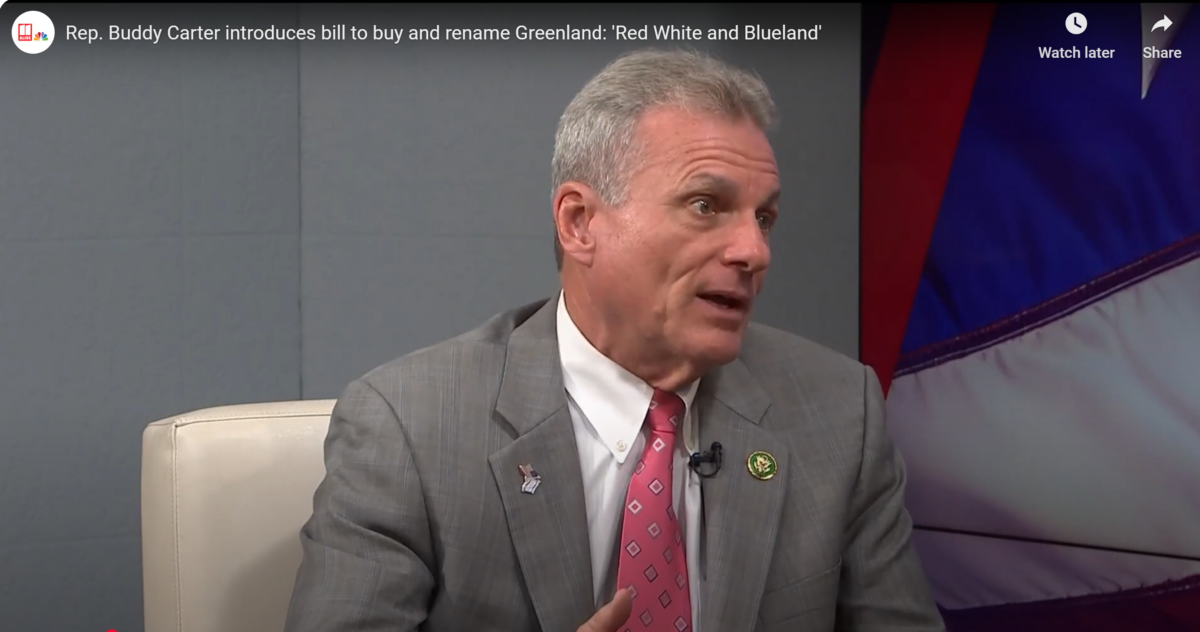Your constituents want to hear from you.
Out on Nextdoor, I counted two separate change.org petition campaigns demanding that you have a live town hall. Folks in Tybee are getting together a group request for the same. I imagine if I looked further out, I’d find similar efforts up and down the coast.
Your constituents really want to hear from you.
Your March ‘tele-town hall’ is leaving most folks cold, if comments to your Facebook post on this are any indication. The voters want a chance to talk to you, face-to-face. They want you to hear from them, not just us passively hearing from you with your little PR newsletters extolling the virtues of a Musk-dominated White House.
True, you won’t be getting a warm reception. Folks are unhappy. They’re unhappy about cuts to federal programs they need. They’re not happy about closing down NOAA operations, or local Social Security offices, or firing veterans. It wasn’t until the DOGE-inspired cuts that most people realized that 30% of federal workers are veterans.
Most of your constituents don’t like Elon Musk. They don’t like the fact that this unelected billionaire is calling Social Security a ponzi scheme and broadly hinting about large cuts to the program under the guise of ‘fraud’. They don’t like seeing critical and necessary jobs being eliminated, only to scramble to re-hire the folks because the people doing the cuts have no clue about how the government works.
Instead of fixing the economy and lowering the price of eggs, folks are now being warned that we might go into a recession, but that’s OK: it’s for the greater good. But the only greater good that we see happening is a lot of filthy rich people are getting even richer, while the rest of us wonder if we’re actually going to continue getting our Social Security checks.
If what Trump and Musk are doing are so great, why won’t you defend their actions in person? Why are you so afraid to meet the voters face-to-face?
You don’t have a lot of options, Buddy. A town hall now, or the voters in two years.
If you think the chaos that is surrounding the DOGE actions now is going to get better, it won’t. We’re only now starting to see the damage the uncontrolled DOGE cuts have on government services. In a year, we could be looking at an unprecedented level of government failure because there just aren’t enough people around to keep things running. The first or third or fifth hurricane, the latest wildfire, an explosive growth of both measles and bird flu, failures in our food safety systems…something is going to hit the fan, and it won’t be something pleasant.
People will literally be dying.
And then there’s the very real possibility of enough systems failing that Social Security checks won’t be mailed, or Medicare payments won’t be made to doctors, or soldiers paid, or hard-hit areas getting emergency funds, and at that point, it will be too late to try and get your talking points across to the people.
Your only hope is to have a live town hall now, while you still can. And actually listen to the people. Listen to why they’re angry. They won’t be Democratic operatives hired to harass you, they will be folks that have voted for you in the past. Voted for you, but not for Musk. They didn’t vote for DOGE and they don’t like what’s happening. It doesn’t take a genius to see Trump’s little Musk experiment is failing, and failing badly.
And it doesn’t take a genius to see that Congress is doing little to stop any of it.
You can choose to live in a DC bubble and pretend real folk aren’t being hurt, while you carefully stage a tele-town hall with canned questions by pre-selected ‘voters’. Or you could meet your voters on our terms and just maybe salvage your political career.
The choice is yours.




